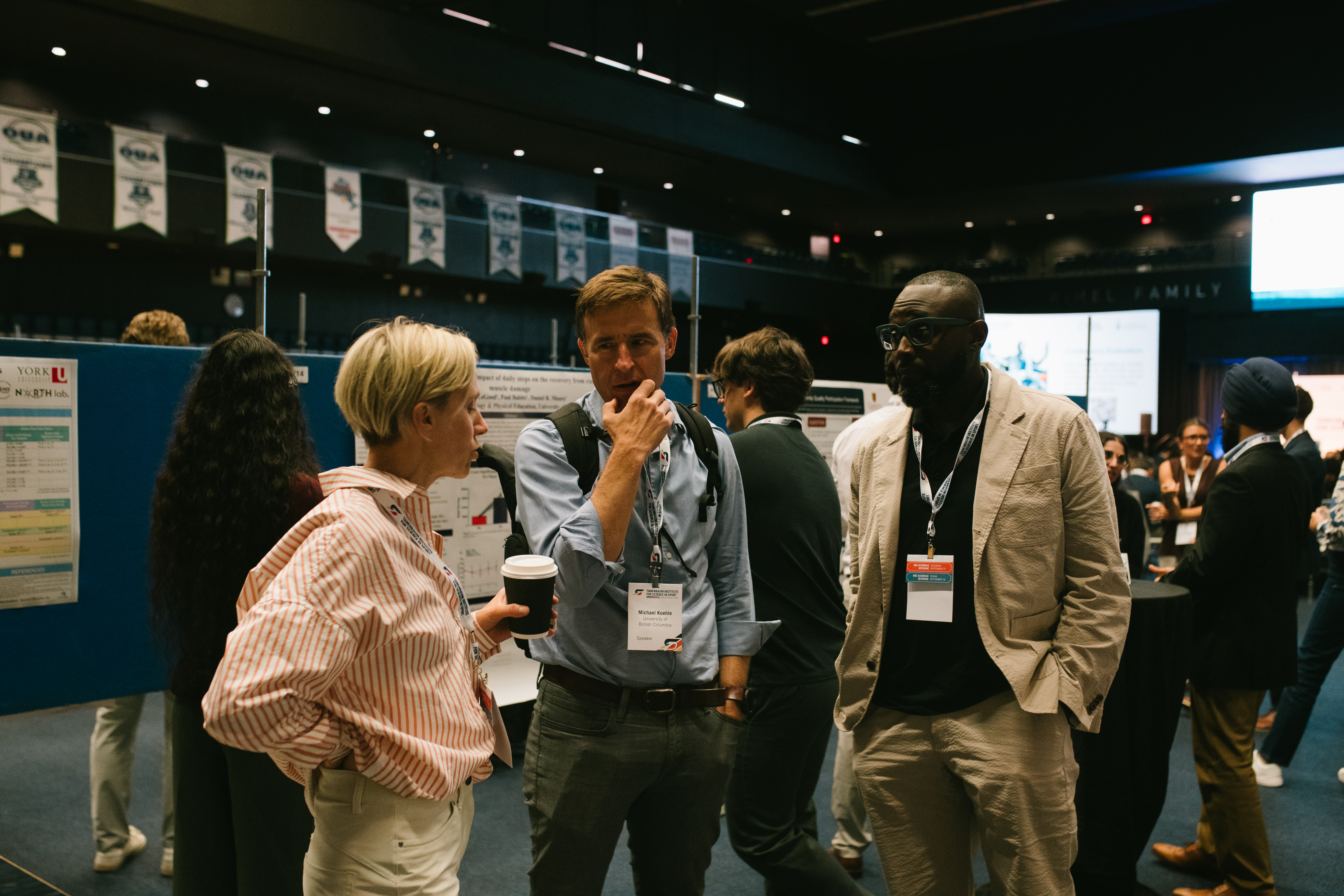The second annual TISS conference covered a wide range of topics trending in the high performance sport sphere - from the impact of climate change on athlete health and performance to the pros and cons of using performance technology for sport analytics and talent identification.
No matter where you are in the world, the local news is guaranteed to cover these two items - the weather forecast and sports. Ira Jacobs, a professor in the Faculty of Kinesiology and Physical Education (KPE) at the University of Toronto, shared this observation while making a point about the global relevance of sport at the second annual Tanenbaum Institute for Science in Sport (TISS) conference, hosted earlier this fall at U of T’s Goldring Centre for High Performance Sport.
TISS was established in 2022 through a $20-million gift from the Larry and Judy Tanenbaum Family Foundation and brings together sport science researchers of KPE with sport medicine researchers of U of T’s Temerty Faculty of Medicine and Sinai Health in a joint mission to translate discoveries into innovations that positively impact athlete health and performance across all athlete populations. The annual conference, which attracts high performance sport experts, scientists and practitioners from near and far, is a practical extension of that mission.

Madeleine Orr, a sport ecologist and assistant professor at KPE, Michael Koehle, professor at UBC School of Kinesiology, and Tim Welsh, professor at KPE, discussed the impact of climate change on athlete health and performance, as well as the impact of sport on the natural environment.
“This conference is entirely devoted to presenting and discussing the latest advances in research, whose ultimate objective is to support, enhance and sustain the physical and cognitive performance, well-being and safety of high-performance athletes,” said Jacobs, who is the director of TISS. “It’s a rare and wonderful opportunity to exchange knowledge and network with the high-performance sports research and athlete communities over two days of presentations.”
The presentations further corroborated Jacobs’ point about the global relevance of sport, addressing a wide range of topics, including: What is the impact of climate change on sport and, conversely, how does sport impact the natural environment, what are the pros and cons to using performance technology for sport analytics and talent identification, and when, if ever, is doping acceptable.

TISS conference attendees milling around poster presentations
Additionally, 29 poster presentations of TISS-funded research were on display for attendees to review between sessions – from investigating the effects of the menstrual cycle and oral contraceptive use on muscle and whole-body protein metabolism in active females to monitoring the effectiveness of wrist bracing for reducing biomechanical risk factors associated with gymnast wrist.
“When my family foundation created the institute three years ago, our goal was simple - to harness the power of sport through research and education,” said Larry Tanenbaum, the chairman of Maple Leaf Sports & Entertainment. “That’s exactly what’s happening here, with coaches, integrated support teams, sport organizations, researchers and students coming together to exchange ideas and drive progress for the broader high-performance community.”

Gretchen Kerr, dean of KPE, Adam van Koeverden, Canada's Secretary of State for Sport, Ira Jacobs, director of TISS, Zoya Babar, TISS program manager pose for a picture.
Adam van Koeverden, Canada’s Secretary of State for Sport, former Olympian and trained kinesiologist, reflected on the lessons learned on his journey to becoming a high performing athlete.
“Something that I realized very quickly was that, to be successful, I had to listen to myself and to sport science,” he said. “Your work is not just about performance and podiums - it is about making all aspects of athletes’ lives better.
“Let’s keep working together—scientists, policymakers, coaches and athletes—to build a sport system that’s grounded in research, driven by excellence and accessible to all.”
Professor Gretchen Kerr, dean of KPE, greeted everyone on behalf of the TISS Executive Committee, including Timothy Chan, associate vice-president and vice-provost of strategic initiatives, Lisa Robinson, dean of the Temerty Faculty of Medicine, and Gary Newton, president and CEO of Sinai Health.

TISS conference participants taking a coffee break
Kerr also chaired a presentation on sex differences in athletic performance and the transgender athlete.
Other presentations at the conference addressed the efficacy and safety of medically prescribed performance enhancing drugs, the advances and challenges for Paralympic sport and female high performing athletes, the controversial Enhanced Games, return-to-play risks and considerations, Relative Energy Deficiency in Sport and mental health interventions in high performance sport.
“I hope these discussions and poster presentations spark new questions, new insights and new collaborations,” said Kerr.

Conference attendees listen to the presentations
“The objective of these sessions was to inform, but also to provoke thought,” added Jacobs. “We know that there are more than two approaches to any issue, but it’s hard to influence something if you’re not sitting at the table.”
A quick glance around the Goldring Centre’s Kimel Family Field House was sure to provide Jacobs with instant gratification – it showed a room full of high performance sport enthusiasts of all ages and stages sitting around tables, taking notes, asking questions and sharing observations.
